Zacc Yang
CMR Scaling Law: Predicting Critical Mixture Ratios for Continual Pre-training of Language Models
Jul 24, 2024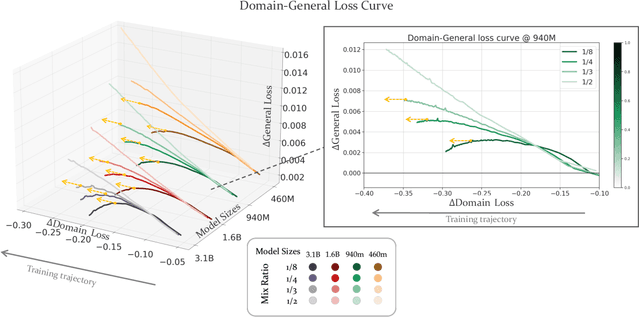

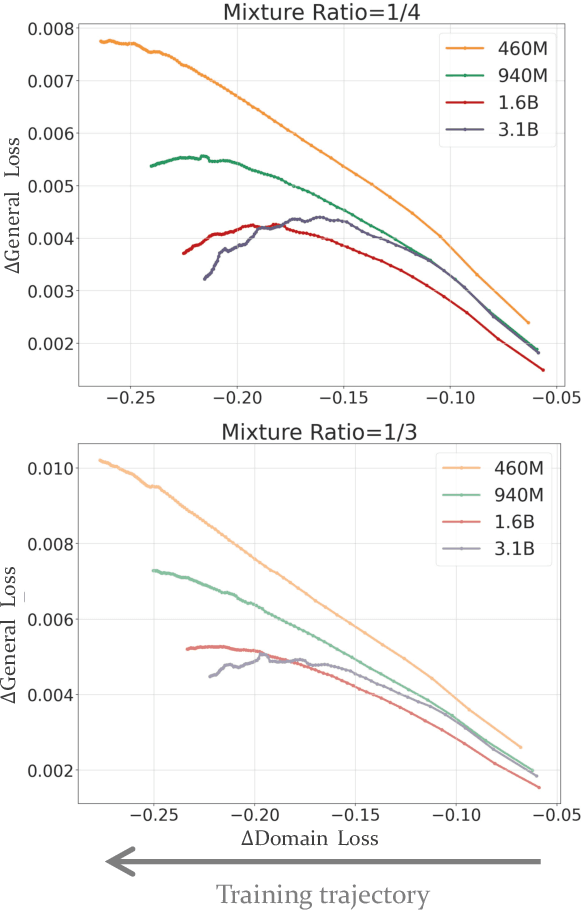
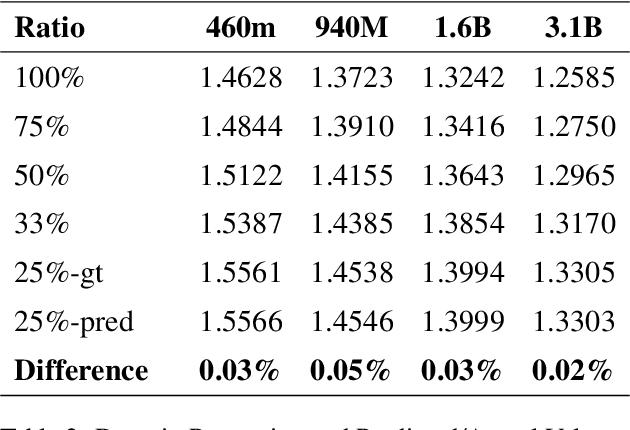
Abstract:Large Language Models (LLMs) excel in diverse tasks but often underperform in specialized fields due to limited domain-specific or proprietary corpus. Continual pre-training (CPT) enhances LLM capabilities by imbuing new domain-specific or proprietary knowledge while replaying general corpus to prevent catastrophic forgetting. The data mixture ratio of general corpus and domain-specific corpus, however, has been chosen heuristically, leading to sub-optimal training efficiency in practice. In this context, we attempt to re-visit the scaling behavior of LLMs under the hood of CPT, and discover a power-law relationship between loss, mixture ratio, and training tokens scale. We formalize the trade-off between general and domain-specific capabilities, leading to a well-defined Critical Mixture Ratio (CMR) of general and domain data. By striking the balance, CMR maintains the model's general ability and achieves the desired domain transfer, ensuring the highest utilization of available resources. Therefore, if we value the balance between efficiency and effectiveness, CMR can be consider as the optimal mixture ratio.Through extensive experiments, we ascertain the predictability of CMR, and propose CMR scaling law and have substantiated its generalization. These findings offer practical guidelines for optimizing LLM training in specialized domains, ensuring both general and domain-specific performance while efficiently managing training resources.
Balancing Speciality and Versatility: a Coarse to Fine Framework for Supervised Fine-tuning Large Language Model
Apr 16, 2024

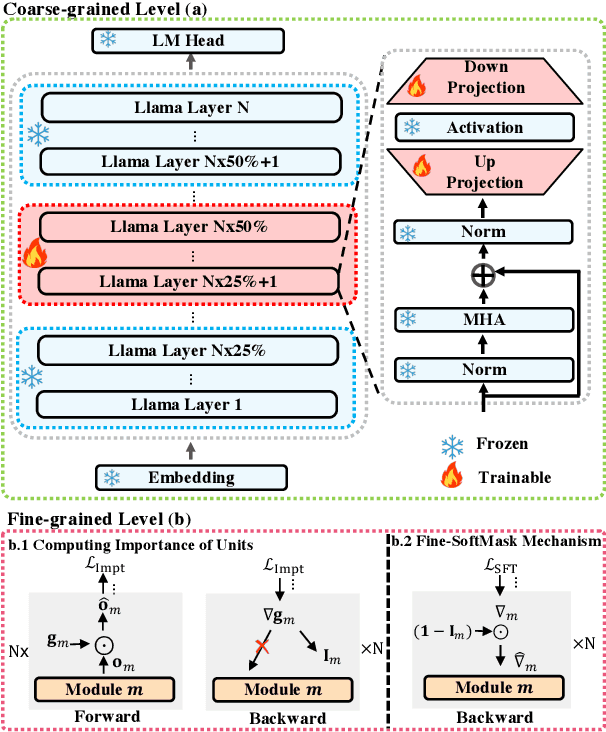
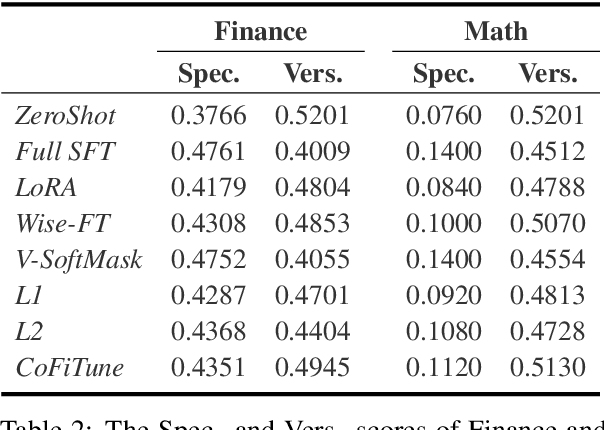
Abstract:Aligned Large Language Models (LLMs) showcase remarkable versatility, capable of handling diverse real-world tasks. Meanwhile, aligned LLMs are also expected to exhibit speciality, excelling in specific applications. However, fine-tuning with extra data, a common practice to gain speciality, often leads to catastrophic forgetting (CF) of previously acquired versatility, hindering the model's performance across diverse tasks. In response to this challenge, we propose CoFiTune, a coarse to fine framework in an attempt to strike the balance between speciality and versatility. At the coarse-grained level, an empirical tree-search algorithm is utilized to pinpoint and update specific modules that are crucial for speciality, while keeping other parameters frozen; at the fine-grained level, a soft-masking mechanism regulates the update to the LLMs, mitigating the CF issue without harming speciality. In an overall evaluation of both speciality and versatility, CoFiTune consistently outperforms baseline methods across diverse tasks and model scales. Compared to the full-parameter SFT, CoFiTune leads to about 14% versatility improvement and marginal speciality loss on a 13B model. Lastly, based on further analysis, we provide a speculative insight into the information forwarding process in LLMs, which helps explain the effectiveness of the proposed method. The code is available at https://github.com/rattlesnakey/CoFiTune.
 Add to Chrome
Add to Chrome Add to Firefox
Add to Firefox Add to Edge
Add to Edge